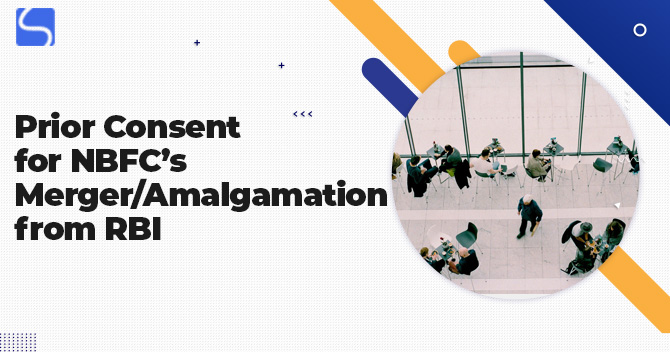CERSAI Registration for NBFC

Ganesh Nair | Updated: Sep 14, 2022 | Category: NBFC, Other Services
CERSAI is short for Central Registry of Securitization Asset Reconstruction and Security Interest of India. It was created in the year 2011 as per section 20 of the SARFAESI Act. CERSAI was designed to put an end to fraudulent activities involving the transactions of the mortgaged property. We discuss CERSAI registration for NBFCs
Table of Contents
Why is there a need for CERSAI?
In India, it was becoming common to mortgage a property multiple times to avail of loans from financial institutions simultaneously. Here in, people used multiple certified copies of the same property to avail of loans from various sources.
With the help of the CERSAI registry, the banks can find out the details of the property and verify whether it has already been mortgaged or not when a person applies for a loan. So far, CERSAI has been successful in tackling the issues related to fraud and misrepresentation while lending loans.
Any of the concerned stakeholders can check the status of the property through the CERSAI portal.
Features of CERSAI
- Central Database: Central Registry of Securitisation Asset Reconstruction and security interest of India helps to create a central database that shall carry all the information about mortgaged properties.
- Registration of transactions: Banks, NBFCs and other lending institutions are able to register transactions related to asset securitisation and reconstruction.
- Security: It allows the people who plan to buy a new property to know whether the property is free from any liability.
- Verification: Financial institutions can cross-check all the property details before handing out a loan to the applicant. They can be assured of the fact whether the property is being used as collateral elsewhere.
- Wide scope: CERSAI portal can be used to register all types of mortgages. This shall include securities of movable and intangible assets like patent copyrights, Book Debt, Account receivables etc.
Which institutions can register themselves under CERSAI?
- All Financial institutions: Small finance banks, Commercial banks, Cooperative banks and all NBFCs are required to get the CERSAI Registration.
- Secured Creditors: every type of secured creditor, such as private sector banks, Public sector banks, NBFC not accepting public deposits, Regional rural banks, Housing Finance Companies, and Security Trustees. Factoring companies, Asset reconstruction companies etc.
- Other entities: Sole proprietors, Hindu undivided families, Individuals and other types of creditors.
Latest RBI Guidelines for NBFC on CERSAI Registration
- As per the master directions issued for NBFC-Sis, it is mandatory for all the NBFCS to file details of equitable mortgages on the CERSAI database.
- Another notification released by the RBI stated the following securities to be included:
- A security interest in Immovable property
- A Security interest that are created by hypothecation of plant, stocks machinery, book debts or receivables
- A security interest is created via intangible assets. This will include patent copyrights, know-how trademarks, franchises or licenses etc.
- A security interest created on under-construction residential or commercial property by an agreement
How often does the CERSAI database needs to be updated by the NBFC?
The registration process is mandatory for all the financial institutions that are handing out loans to an individual on collateral against a property. In our case, the NBFC must feed in the information about the property in the CERSAI database.
NBFC/banks and other institutions have the responsibility of to send out the above-mentioned data within a period of 30 days from the date of such transaction. If the entities fail to provide this information in the time frame mentioned, they shall be liable for a fine.
CERSAI REGISTRATION FEE FOR NBFCS
The CESAI registration charges for NBFCs/ banks/ other institutions are not that expensive. The applicant will be charged between Rs.50 to Rs.100 depending upon the loan amount against the given property.
| Sr No | Nature of Transaction | Fee payable (Excl. Tax) |
| 1 | Creation or modification of Security Interest in favour of secured creditors / Other Creditors | Rs.100 for a loan above Rs.5 lakh and Rs.50 for a loan up to Rs.5 lakh. |
| 2 | Satisfaction of any existing Security Interest | NIL |
| 3 | Securitisation or reconstruction of financial assets | Rs.500 |
| 4 | Satisfaction of securitisation or reconstruction of financial assets | Rs.50 |
| 5 | Search for information in CERSAI | Rs.10 |
| 6 | Assignment of Receivables | Rs.10 for the assignment of receivables of less than Rs.5 lakh and Rs.100 for the assignment of receivables of Rs.5 lakh and above. |
| 7 | Satisfaction of registration on the realisation of the receivables | NIL |
| 8 | Condonation of delay up to 30 days for Assignment of Receivables | Ten times the basic fee, as applicable. |
CERSAI REGISTRATION FOR NBFCS
The following is the process of CERSAI registration for NBFCs:
- Visit the official website of CERSAI for registration
- The NBFC is required to complete the registration online by going through the Entity Registration option on the website.
- The entity must have a Digital Signature Certificate (DSC) or CKYC to access the CERSAI portal[1] further and complete the relevant details.
- Once the entity has filled in all the required information, including CKYC, Mobile no. address etc, the same information must be printed out in a hard copy and signed by the authorised signatory.
- Once signed, the form along with all the relevant documents should be sent to the official address of CERSAI.
Conclusion
CERSAI portal has significantly reduced the frauds that take place in the lending business. It has made it mandatory for all financial institutions to register the property on the portal against which they are giving a loan. This ensures that a person cannot take a loan against the same property multiple times simultaneously.
Read our Article:Base Layer for NBFCs under Scale Based Regulations














